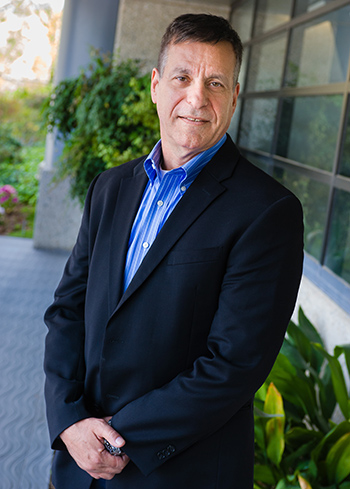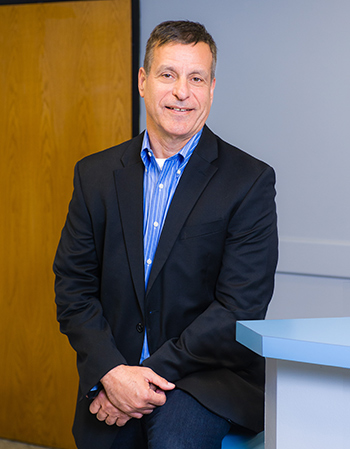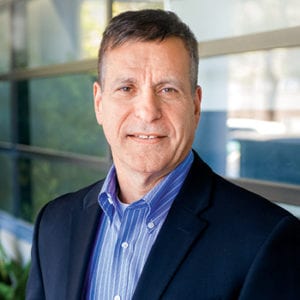Helping clients navigate life’s critical events
Helping clients navigate life’s critical events

Daniel Ruben, M.D., MPH, MBA • Westlake Village, CA
Life Strategies Advisors, Inc. • Independent Financial Group LLC (IFG)
Read full biography below
Proactive Advisor Magazine: Daniel, what factors led to your move from practicing physician to financial advisor?
After I graduated from medical school and finished my training and residency, I worked for a medical group for a short time and then opened my own practice. I had a very busy internal medicine practice and active hospital practice. After a few years that were successful in terms of practice growth, I decided I wanted to also run a business and recruited several top physicians, creating a multi-specialty group practice. I think our model was quite progressive at its time, and we were at the forefront of electronic medical record-keeping. The practice and associated management group kept building value, and I ultimately sold my interest in 1995. During this period, I had also founded a free medical clinic, which was personally very gratifying. After I sold the practice, I continued my own small private practice with my own patients.
Many factors ultimately led me to financial services. First, by this time I had built up some substantial personal assets and wanted to make sure they would be managed properly for the rest of my lifetime and for the benefit of my family. I had been approached by many financial advisors through the years, but, frankly, I just never was able to find the right fit or be on the same page. Second, I had a powerful intellectual curiosity about the markets and wealth management. I decided to study for my MBA and found that to be a highly energizing experience. I already knew I had good instincts for managing a business and the discipline to do so successfully.
I found that I truly loved financial analysis and slowly began to invest my own money in many ways: traditional investments such as stocks and bonds, real estate, venture capital, and some private equity. Finally, by this time, I had married, and we were planning on starting a family. I wanted to find a second career that would be challenging but also allow me some flexibility in terms of family time. These factors all came together, and I started planning to become a full-time financial advisor. I feel fortunate to have found a broker-dealer who supported my somewhat unconventional career transition, and I started my firm in 2012.
Talk about your overall service philosophy in working with clients.
 I think several influences from my work as a physician have shaped how I approach working with clients from a financial-planning perspective. First, I truly enjoy working with people and helping them to live more fulfilling lives. Helping them to create a more successful financial future has many parallels to helping patients lead healthier lives. Second, medicine is all about fact-finding, thorough diagnosis, and then recommending a course of action working in concert with the patient. Education is a key component. These disciplines are important in the process of financial planning.
I think several influences from my work as a physician have shaped how I approach working with clients from a financial-planning perspective. First, I truly enjoy working with people and helping them to live more fulfilling lives. Helping them to create a more successful financial future has many parallels to helping patients lead healthier lives. Second, medicine is all about fact-finding, thorough diagnosis, and then recommending a course of action working in concert with the patient. Education is a key component. These disciplines are important in the process of financial planning.
Third, my entire philosophy in internal medicine was centered on taking a holistic approach to people’s health, and that is how I approach working as a financial advisor. It does little good to help solve one issue if others are not also addressed within a complete program. As a physician, I often dealt with the consequences of denial, procrastination, and expedient choices that were not always wise for one’s health and well-being. A holistic approach led to the best results. It is the same thing with one’s wealth. A holistic and thoughtful approach that includes making the most out of the present, while planning for the future, leads to the best results. I am committed to working with clients in this way and see my role as being a client advocate in all ways that I can.
Describe the types of services your firm delivers and how your process works.
The name of our firm, Life Strategies Advisors, was chosen purposefully, and it informs how our process works. I believe our role in working with clients is to help them successfully navigate what we call “critical life events.” These might be as diverse as planning for retirement, selling a business, receiving an inheritance, divorce, the death of a spouse, buying or selling property, saving for college for children or grandchildren, managing a health crisis, or proactively planning for a family’s legacy.
We have created a grid that we walk through with clients very early in our discussions. It outlines the areas we would like to explore throughout the planning process. This includes five strategic life goals, with detailed priorities under each: clarifying a vision and plan for the future, balancing work and lifestyle, creating financial comfort, protecting and helping family, and leaving a legacy.
Working through this type of disciplined process leads to the holistic financial plan I discussed previously. It begins with extensive discovery, a thorough assessment of the current situation, the formulation with the client of goals and objectives, and then my due diligence and presentation of recommendations. We work in a consultative fashion to discuss these recommendations, exploring pros and cons and considering what-if scenarios. We will reach agreement on specifics and then move into the implementation phase. We prefer to work in cooperation and coordination with a client’s tax and legal advisors as needed with the goal of promoting the client’s best interests in all areas—proactive tax and legacy planning are extremely important. The ongoing phase of the process comes in the form of monitoring progress toward objectives, having regular client review sessions, and making sure this financial road map is charting the right course, especially as life circumstances change. That is a continual process throughout our client relationships.
What is your broad approach to investment planning?
 I basically subscribe to the philosophy of goals-based investing. I believe there should be a goal for every dollar a client has. If the horizon for that dollar is longer term, then, depending on the situation, what one should want is the greatest amount of efficiency. You don’t want too much trading activity because of potential tax consequences and transactional costs that ultimately diminish efficiency in the long term. So, for goals that might be 10 or more years out, I will usually look toward more strategic, passive investments. I believe that markets work in the client’s favor in the long term—it is in the short term where they don’t always work so well.
I basically subscribe to the philosophy of goals-based investing. I believe there should be a goal for every dollar a client has. If the horizon for that dollar is longer term, then, depending on the situation, what one should want is the greatest amount of efficiency. You don’t want too much trading activity because of potential tax consequences and transactional costs that ultimately diminish efficiency in the long term. So, for goals that might be 10 or more years out, I will usually look toward more strategic, passive investments. I believe that markets work in the client’s favor in the long term—it is in the short term where they don’t always work so well.
If money is designated more for short-term objectives, then you must work to protect that. Under 10 years, and especially under five years, you need to constantly manage risk. A client’s investment plan needs to be structured to manage and minimize to the degree possible the risk of sizable drawdowns. That’s where we will look at active money management and most likely will use the services of a money-management firm that has strategies designed to manage risk while seeking competitive returns. I also subscribe to the theory that not all active strategies will be performing optimally in all market scenarios, so I like generally to use a blend of strategies that have fundamentally different performance characteristics while sharing the emphasis on risk management.
“The name of our firm, Life Strategies Advisors, was chosen purposefully, and it informs how our process works.”
I work with clients from all walks of life, with varying levels of income and assets, and with very different perspectives on life, so my commitment is to customize investment plans for each client. It also obviously makes a tremendous amount of difference if a client is in the accumulation phase of their life or the distribution and income-planning phase. The real commonality for every investment plan is managing risk, whether that is in the form of market risk, inflation risk, tax exposure, longevity risk, or life-event risk. We will use more aggressive growth strategies when time is working in our client’s favor and be more conservative when time frames are shorter. Those broad investment philosophies drive my overall approach, and then we will customize the investment plan in line with each client’s goals and objectives.
What would you like clients to say about working with you if they were to refer you to a friend?
I believe three attributes stand out that I would hope my clients feel are true—that I conduct our relationship with integrity, compassion, and professionalism. I have asked clients a similar question about what they like about our working relationship. Generally, they respond that I have been able to help them optimize their financial lives and work as a close partner on their behalf, which makes me very happy and proud.

Pursuing a holistic ‘life approach’ to financial planning
Daniel Ruben, founder of Life Strategies Advisors, Inc., says the name of his firm was carefully chosen and informs how his holistic process works. He believes his role in working with clients is to help them successfully navigate what he calls “critical life events.” He has a grid he shares with clients in the planning process that covers five strategic life goals, with detailed priorities under each:
- Clarifying a vision and plan for the future.
- Balancing work and lifestyle.
- Creating financial comfort.
- Protecting and helping family.
- Leaving a legacy.
Recent Posts:
 Daniel Ruben is the founder of Life Strategies Advisors, Inc., located in Westlake Village, California. His firm provides comprehensive wealth management through “a long-term partnership with clients.”
Daniel Ruben is the founder of Life Strategies Advisors, Inc., located in Westlake Village, California. His firm provides comprehensive wealth management through “a long-term partnership with clients.”
Dr. Ruben was born in Israel and immigrated with his parents first to Canada and then to the United States as a young boy. He says his parents overcame significant hurdles to acquire their educations in the U.S., with his father earning a master’s degree in electrical engineering and his mother a nursing degree. Dr. Ruben has a bachelor’s degree in microbiology and a master’s degree in public health from UCLA, and a doctorate in medicine from the University of Texas. After practicing as a physician for many years, he also acquired an MBA from the University of California, Irvine.
Dr. Ruben’s medical career began at Parkland Hospital in Dallas. In 1985, he founded a multi-specialty group practice in Sherman Oaks, California, which he successfully managed for 20 years. He says he was motivated to make a career change by a lifelong interest in the financial markets, the challenge of properly managing his own wealth, and the appeal of working as a holistic financial advisor with clients. He founded Life Strategies Advisors in 2012.
Dr. Ruben says he moved back to Israel in 2002 for four years where he also practiced medicine and “courted the wonderful woman” who would become his wife. He and his wife live outside of Los Angeles and have two daughters. He says he is a “very present parent,” and his family enjoys many activities together, including travel. Dr. Ruben is an instrument-rated pilot and is skilled at sailing. He is proud of having started a free clinic in his area, which he ran for 10 years. He also finds time to teach educational financial classes in his area and is involved with his children’s local school system.
Disclosure: Daniel Ruben is a registered principal, offering securities and advisory services through Independent Financial Group LLC (IFG), a registered broker-dealer and investment advisor. Member FINRA & SIPC. Life Strategies Advisors and IFG are unaffiliated entities.
Photography by Robert Bell

